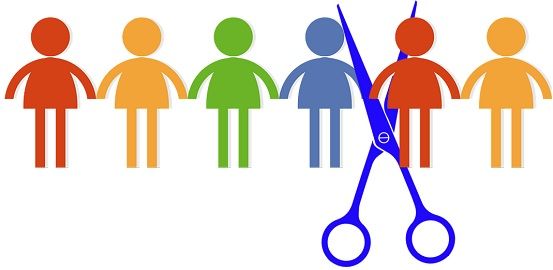 When an employee leaves the organisation, the situation is known as separation. The cause of separation can be voluntary or involuntary. In the former, the employee decides to terminate his/her relationship with the employer, but when the employer initiates the separation, it is an involuntary separation. Being laid-off and fired are two types of involuntary separation, wherein laid off is due to the inability of the employer to give employment to the employee.
When an employee leaves the organisation, the situation is known as separation. The cause of separation can be voluntary or involuntary. In the former, the employee decides to terminate his/her relationship with the employer, but when the employer initiates the separation, it is an involuntary separation. Being laid-off and fired are two types of involuntary separation, wherein laid off is due to the inability of the employer to give employment to the employee.
On the other hand, the firing of an employee occurs when the employee is terminated due to his/her fault.
When an employee is laid-off, it is only for a short period, whereas when an employee is fired, he/she can never join the organization again. The article presented to you, explains the difference between laid-off and fired, in detail.
Content: Laid-off Vs Fired
Comparison Chart
| Basis for Comparison | Laid-off | Fired |
|---|---|---|
| Meaning | Lay-off implies the provisional suspension of an employee or a group of employees from work by the employer, due to the company's inability to provide employment. | In business terms, fire means to reduce an employee from work, against his/her will, due to under-performance or serious infraction. |
| Nature | Temporary | Permanent |
| Caused by | Downsizing, restructuring or economic downturn. | Employee's misconduct, poor performance or violation of policies. |
| Compensation | Granted | Not granted |
| Position | Not refilled | Refilled |
| New employment | Easy to find | Difficult to find |
| Degree of severity | Low | High |
Definition of Lay-off
The term layoff is used to refer a situation when an employee or a group of employees are temporarily separated, at the instance of the employer, for reasons such as slowdown or cyclical slump in revenue. It is an involuntary reduction in the workforce, due to failure, refusal or employer’s inability to provide employment to an employee, whose name exist on rolls.
The situation may be experienced because of machinery breakdown, economic recession, insufficiency of raw materials, accumulation of stock and so forth.
Lay-off occurs for a specified period, after the expiry of which the employee is recalled to join the job again. However, the term of lay-off can be extended to any length of time, and so the employer cannot anticipate, how long the situation may continue. During this time, the employee is paid compensation, which is equivalent to 50% of the basic salary.
Definition of Fired
To fire means to put an end to the employment, initiated by the employer against the will of the employee. Also known as dismissal or discharge, it is a drastic step, taken by the employer, after considering all the parameters, such as the performance, competence, skills, etc.
The decision to fire an employee must be supported by ‘just and fair’ reasons which could be excessive absenteeism, theft of company’s property, serious misconduct, disobedience, harassing coworkers, poor performance, reporting to an office in an intoxicated state, incompetence, etc.
Key Differences Between Laid-off and Fired
The points given below are noteworthy, so far as the difference between laid off and fired is concerned:
- The provisional suspension of an employee or a group of employees from work by the employer, due to the company’s inability to provide employment, is called lay-off. The reduction of an employee from work by the employer, against employee’s will, due to under-performance or serious infraction is known as fire.
- Lay-off is a temporary situation, i.e. the employee might be recalled by the employer for duty when the term of lay-off is over. On the contrary, when an employee is fired, there is no chance of getting the employment back, i.e. it is permanent.
- The reasons for lay-off include downsizing, restructuring or economic downturn. As against this, a person may be fired because of his own misconduct, incompetence or insubordination.
- When an employee is laid-off by the company, he/she is eligible to receive compensation. Conversely, when the employee is fired, he/she is not entitled to receive compensation from the employer.
- After termination, the position of a laid-off employee remains vacant, whereas the fired employee is immediately replaced with a new one.
- When the employee is laid-off, he/she can easily find a new job, as the reason for laid-off is beyond anybody’s control. However, when an employee is fired, it is hard to find a new job, because he was terminated from the job because of his performance or behaviour, which adversely affects his/her resume.
- The situation of being laid-off is less severe, as compared to being fired.
Similarities
Both laid-off and fired, refers to employee’s cessation from work, i.e. he/she is no longer regarded employed by the company. The initiative of termination is taken by the employer. The employee is not going to receive wages or other benefits from the company anymore.
Conclusion
While laid-off entitles an employee for compensation and other unemployment benefits, this is not in the case of being fired, because, it occurs due to his own fault. Both laid-off and fired are the worst thing that can happen to an employee, who is sole bread-earner in his/her family, as it is very difficult to find a new job immediately. The most important differences between these two involuntary terminations are semantics.






Leave a Reply